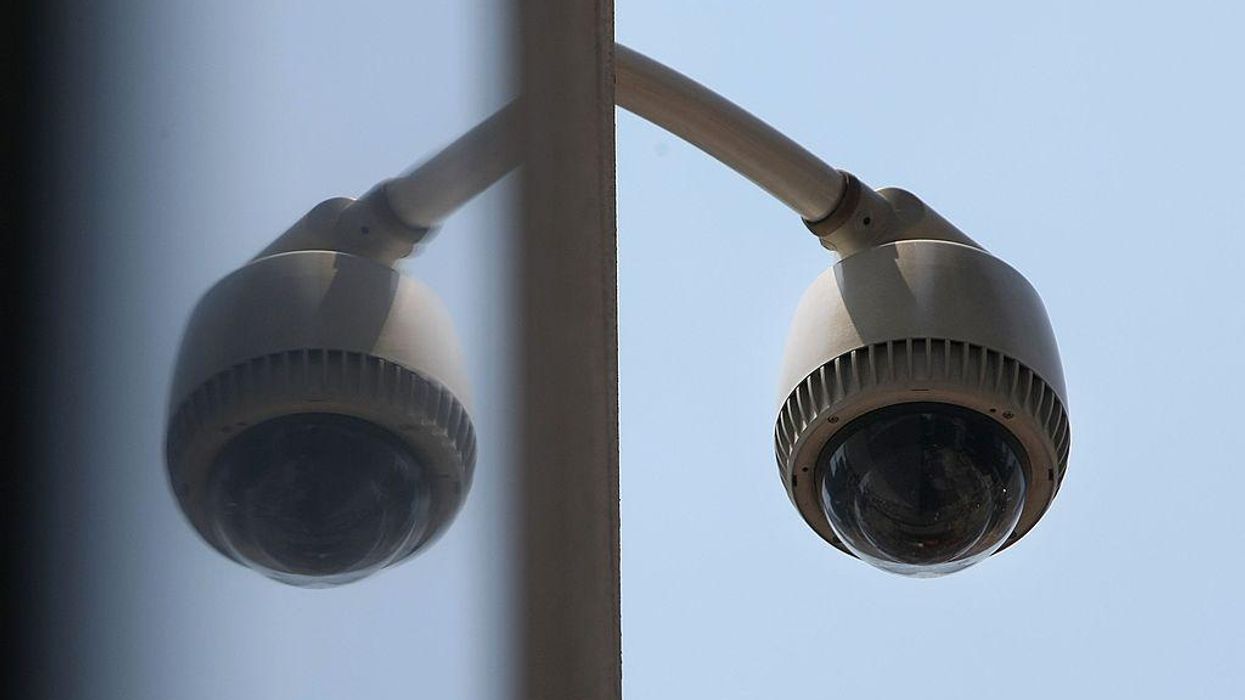
Photo by Mario Tama/Getty Images

On Tuesday, the San Francisco Board of Supervisors approved legislation to expand police access to private cameras, including for suspected misdemeanor violations and prevention purposes.
The measure stated that law enforcement would first be required to receive consent from the owners of the private cameras. Police can view recorded footage and tap into live surveillance if granted permission.
The policy will be implemented as a one-year pilot program that permits police temporary access to footage no longer than 24 hours in duration. As a part of that pilot program, SFPD will be required to submit quarterly reports to track the program's progress.
It is unclear how the San Francisco Police Department will be expected to request consent from owners of private cameras. If authorities are denied consent from an owner, they will be able to issue a warrant to access the footage.
The measure permits authorities to monitor "large or high-profile" events even if a crime is not in progress. Law enforcement can also view footage if they suspect a life-threatening emergency or if the evidence could assist in a criminal investigation, including misdemeanors.
"The San Francisco Police Dept. does not have enough police officers to monitor crime in real time. We just don't," San Francisco Supervisor Catherine Stefani, who supported the policy, told KGO-TV. "For me it expands what our officers can do to keep our community safe."
The news outlet reported that the SFPD might be short 825 officers by the end of the year.
Saira Hussain, a staff attorney with the Electronic Frontier Foundation, argued that surveillance does not make San Francisco safer. She expressed concern that increased monitoring will disproportionately impact "marginalized" communities and infringe First Amendment rights.
"We know that in the past SFPD has used such cameras to monitor pride and the protests following George Floyd's murder," Hussain told KGO-TV. "We're very concerned about what this could mean for the rights of people in the LGBTQ community, communities of color, and religious minorities. And people who are engaged in lawful protest."
A 2019 study found that San Francisco was one of the country's top five most surveilled cities. At the time, for every 1,000 people, the city had just over three cameras.
Chris Larsen, a cryptocurrency billionaire, has invested $4 million since 2012 in adding more than 1,000 privately owned cameras to the streets of San Francisco. Larsen offered to pay for the installation of surveillance cameras in business districts around the city to combat crime.
The private camera networks are monitored and run by five local property owner groups, not by Larsen. If the police wanted to gain access to the surveillance systems, they would need consent from the community leaders.
Before the new measure, police were already granted access to footage on these cameras; however, they were typically not allowed to view live footage. Two of the five property owner groups have already expressed interest in providing police access to real-time footage following news of the policy change.
SFPD released a statement on Wednesday in response to the new policy that read, "The goal of this proposed policy is to clarify, affirm, and codify SFPD's use of video surveillance technology owned and operated by businesses and individuals who want to address crime in this city,"
The statement continued, "This policy ordinance defines limited and restricted circumstances where we can request live monitoring or historical footage from video surveillance technology already in place throughout the city. Furthermore, the Department has considered the potential civil liberties impacts and has identified safeguards to ensure protections as mitigating measures."